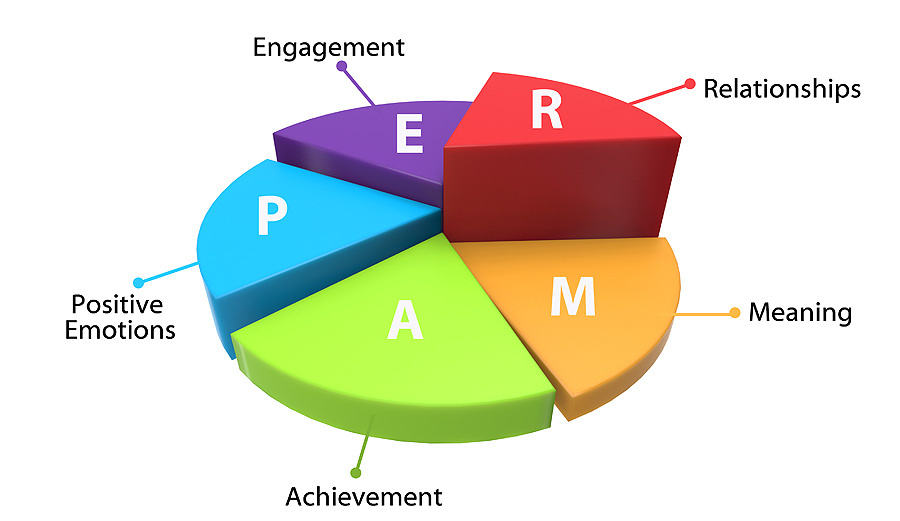Dr. Martin Seligman, credited as the father of Positive Psychology, describes and measures human flourishing and well-being based on five elements, i.e., PERMA.
P–Pleasurable emotions (happiness, contentment, rapture, elation)
E–Engagement, aka Flow (being totally immersed in what you are pursuing in the moment)
R–Relationships (family, friends, worthwhile/enjoyable social connection)
M–Meaning (a sense of belonging, purpose, and service to something bigger than yourself)
A–Achievement (accomplishing new levels of skill acquisition, i.e., competence)
What I like most about this mnemonic is how comprehensive it is in defining and assessing human flourishing, i.e., “a life well lived.”
Parents are notorious for telling their sons and daughters, “I just want you to be happy.” While this statement, like most things parents say, is well intended, it is as consequentially problematic as asking a child what they want to be when they grow up (as if there is some definitive finish line to when someone is “done” growing up).
Happiness is an emotion that we, particularly as Americans, put way too much pressure on ourselves and others to not just feel but attain. What we forget is that happiness, like hunger, fatigue, disappointment, calm, surprise, and disgust are feelings not destinations.
“One specific phrase has come to define American culture and psychology: ‘Life, liberty, and the pursuit of happiness…’ What Jefferson didn’t realize is, with that single statement in the Declaration of Independence, he framed the experience of ‘Happiness’ as unattainable. That notion would go on to shape the culture of America” (Benjamin Hardy, pp. xiii-xiv).
Sometimes we will feel happy and sometimes we won’t. And, counter to what Thomas Jefferson stated, happiness is a feeling we can cultivate internally while in flow (engagement), tending to our loving relationships, contributing to make an impact on something bigger than ourselves (meaning), and while growing in our mastery of specific skills (achievement). Therefore, pursuing happiness in and of itself is not a healthy pursuit nor will it make you happy.
Knowing what the elements are that contribute to a prosperous life can be a useful mental model for deliberately reflecting on our experiences. For example, you can filter your review of 2021 through PERMA:
- What kinds of positive emotions did you experience?
- How often did you find yourself fully engaged and present with your pursuits or interactions?
- What bonds were forged and/or strengthened over the year?
- In what ways did you contribute and make an impact toward the advancement of a just cause?
- What did you accomplish and/or what skills did you refine or acquire?
I encourage you to use this mental model to re-think and re-examine your life and its contents beyond just the metric of happiness.
P.S. This is what I consider an example of a tangible and tactical mental skillset, i.e., when I deliver mental skills coaching, mental models like PERMA are used to help individuals improve their ability to become more self-aware to then effectively self-regulate and self-reflect.




